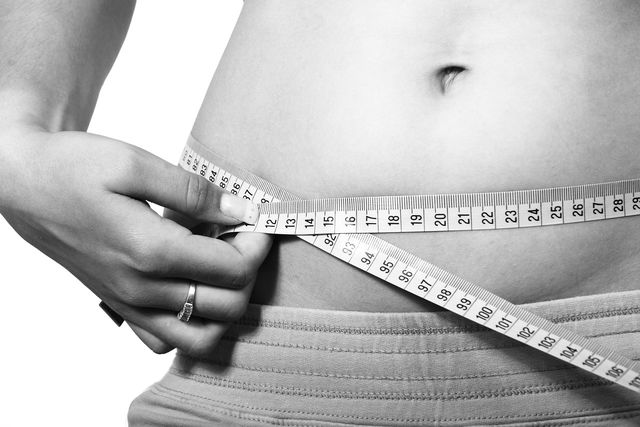Is salt making you fat?
Though salt (sodium chloride) often gets ignored by dieters and healthy eaters, it’s actually one of the deadliest ingredients in the  food supply. It's no secret that a high-sodium diet raises blood pressure, which in turn can cause heart attacks and strokes. But new studies show that salt is even more dangerous than we thought: Eating too much has been linked to osteoporosis, dementia, cancer, and other serious health problems. It can also add inches to your waist. Here's how a single ingredient with zero calories can be such a major cause of weight gain—and how you can sleuth out hidden sodium to protect your health.
food supply. It's no secret that a high-sodium diet raises blood pressure, which in turn can cause heart attacks and strokes. But new studies show that salt is even more dangerous than we thought: Eating too much has been linked to osteoporosis, dementia, cancer, and other serious health problems. It can also add inches to your waist. Here's how a single ingredient with zero calories can be such a major cause of weight gain—and how you can sleuth out hidden sodium to protect your health.
 food supply. It's no secret that a high-sodium diet raises blood pressure, which in turn can cause heart attacks and strokes. But new studies show that salt is even more dangerous than we thought: Eating too much has been linked to osteoporosis, dementia, cancer, and other serious health problems. It can also add inches to your waist. Here's how a single ingredient with zero calories can be such a major cause of weight gain—and how you can sleuth out hidden sodium to protect your health.
food supply. It's no secret that a high-sodium diet raises blood pressure, which in turn can cause heart attacks and strokes. But new studies show that salt is even more dangerous than we thought: Eating too much has been linked to osteoporosis, dementia, cancer, and other serious health problems. It can also add inches to your waist. Here's how a single ingredient with zero calories can be such a major cause of weight gain—and how you can sleuth out hidden sodium to protect your health.
How does salt make you gain weight?
Salt increases hunger…
Research shows that consuming salt triggers the release of dopamine, the neurotransmitter associated with the brain's pleasure center, making salty foods as addictive as nicotine and alcohol. Therefore, as with any addiction, eating salty foods makes you crave more. Since so many salty foods--like potato chips, French fries and fast-food—are also high in fat and calories, overdoing it on salt packs on the pounds.
Salt increases thirst…
Loading up on salt also increases thirst. This wouldn't be an issue if we usually turned to water--but we don't. Research has found a close link between the consumption of salt and intake of sugary and calorie-dense beverages.
Salt increased insulin production…
Eating too much salt may cause weight gain in less noticeable ways too—by changing how your body metabolizes fat. Studies show that a high-salt diet boosts the production of insulin, the hormone that tells the body to store excess sugar as fat. Simply put, the more insulin you have, the more fat you store and the more weight you gain.
How much sodium do you need?
The 2010 Dietary Guidelines recommend that adults in general should consume no more than 2,300 milligrams (mg) of sodium per day - about one teaspoon, while persons who are 51 and older and those of any age who are African American or have hypertension, diabetes, or chronic kidney disease should limit their daily intake of sodium to only 1,500 mg. This was just revised from the previous recommendation of 2,300 milligrams, as new research indicates that excess sodium is even more dangerous than previously thought. Unfortunately, most people are seriously overdosing on sodium. Americans on average consume around 3,400 milligrams of sodium daily.
How can you cut your salt intake?
The greatest concern isn't the flaky stuff you shake on at the table--it's the salt that's already in your food. The biggest culprits are processed and packaged foods, which load up on salt for flavor but also for texture and to prevent spoilage. About 80% of the sodium in our diets comes from calorie-packed, nutrient-poor, processed foods, such as those found on fast food and many restaurant menus, as well as packaged food in supermarkets. And as our lives have become increasingly more hectic and fast paced, salty processed and fast foods have become staples. The best way to cut salt is limit these types of foods and fill your diet with whole foods including whole grains, lots of fresh fruits and veggies, low-fat dairy, healthy fats and lean protein.
If you want to decrease sodium in your diet and enjoy healthy and delicious meals, eating in (and preparing healthy recipes like those found on Skinnytaste!) is the way to go! Dining at home gives you full control over your choices and your portions and the flexibility to experiment with new flavors and foods.
Heather K. Jones, a registered dietitian
Our Tips

Laugh yourself slim!
Figure friends recommend: Laugh yourself slim! Did you know that your body cannot smile when your mind is nor smiling? In this article we focus on the whole body and especially the h ...

Waist circumference is an important health indicator!
Women´s waist circumference should not exceed 88cm and men´s 102cm. It's not only the measurement of the beauty, it´s also a very important disease risk i ...

